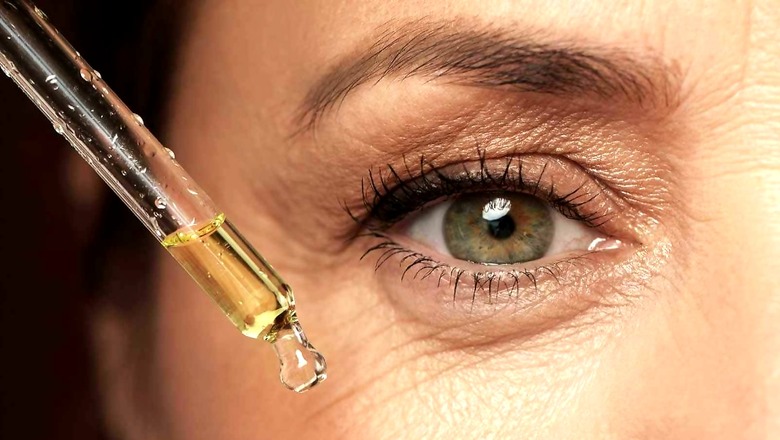
views
Retinoids, derivatives of vitamin A, are widely considered to be one of the most effective ingredients in skincare for various concerns, including fine lines and wrinkles, uneven skin tone, and acne. They work by stimulating collagen and elastin production, promoting cell turnover, and inhibiting melanin production. However, they can be quite potent and may cause irritation or dryness, particularly for those with sensitive skin. Therefore, there is a growing demand for gentler, natural alternatives to retinoids.
Here are four best natural retinol substitutes that you must have:
Rosehip oil
Rosehips, the fruit of the rose plant, are a natural source of various beneficial compounds for skin health. They contain antioxidants such as provitamin A beta-carotene, retinoic acid, and omega-3 fatty acids. D, Dr Ipshita Johri, MBBS, Dermatology and aesthetic consultant and laser specialist and founder, Skinfinity Derma, says, “Rosehips can be used to treat a variety of skin conditions, including congested and dehydrated skin, dryness around the nose, and indentation scars. They are considered a gentle and natural alternative to harsher treatments.”
Also Read: Take Inspiration From Emily In Paris Star Lily Collins For Your Next Trip To Paris
Bakuchiol or Babchi oil
Babchi, also known as Bakuchiol, is a natural alternative to retinoids that is derived from the leaves and seeds of the babchi plant. It is suitable for those with oily, flaky, or dry skin around the nose or eyebrows. In studies, it has been found to be effective in reducing wrinkles and pigmentation, improving elasticity, and firming the skin. “Additionally, it is non-irritating and safe for use during pregnancy or nursing, unlike retinoids which are derived from Vitamin A. If you’re looking for a gentle alternative to retinoids, consider incorporating babchi into your skincare routine,” adds Dr Johri.
Carrot seed oil
Carrot seed oil, which comes from the seeds of wild carrots, is a source of beta-carotene, a prototype of vitamin A that has been shown in studies to support cellular rejuvenation. It is also abundant in antioxidant vitamins C and E, as well as vitamin A, which the skin can transform into retinol. “Eating carrots, which are rich in vitamin A, can help to nourish your skin from within. To keep your skin moisturized and hydrated, it’s important to use a moisturizer regularly, particularly if your skin is dry. Carrot seed oil is effective in regenerating skin elasticity, rejuvenating the skin’s glow, lightening acne marks, and providing the skin with essential vitamins. It’s also important to note that skin care needs may vary throughout the day, so it’s important to adjust your routine accordingly to keep your skin healthy, clear, and radiant,” says Dr Shankila Mittal, Director, Delhi Skin and Hair City.
Azelaic acid
The final alternative, azelaic acid, is produced on our skin by a yeast and naturally occurs in cereals, including wheat, barley, and rye. It is known to be an acne-fighting product. It helps in reducing the swelling and redness, helps in treating acne and spots in sensitive or rosacea prone skin.
To maintain healthy and radiant skin, it’s essential to pay attention to your skin type and the products you use. As our skin changes over time, it’s important to keep track of these changes and adjust your skincare routine accordingly. A balanced diet rich in vitamins and minerals can also help to nourish the skin from within. Additionally, incorporating oils that are specifically formulated to nourish and hydrate the skin, such as rosehip oil and carrot seed oil, can help to maintain the skin’s elasticity, radiance, and overall health. It’s important to regularly check and adjust your skincare routine to keep your skin hydrated, glowing and healthy.



















Comments
0 comment